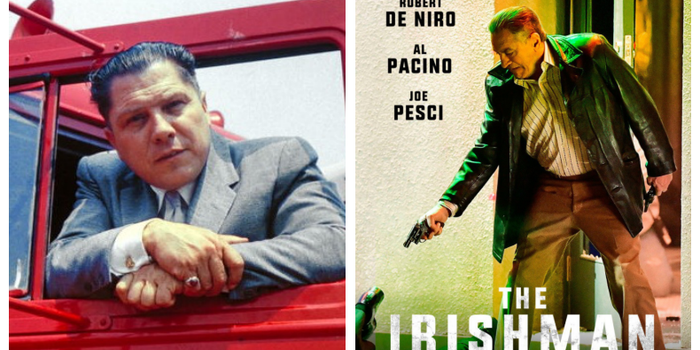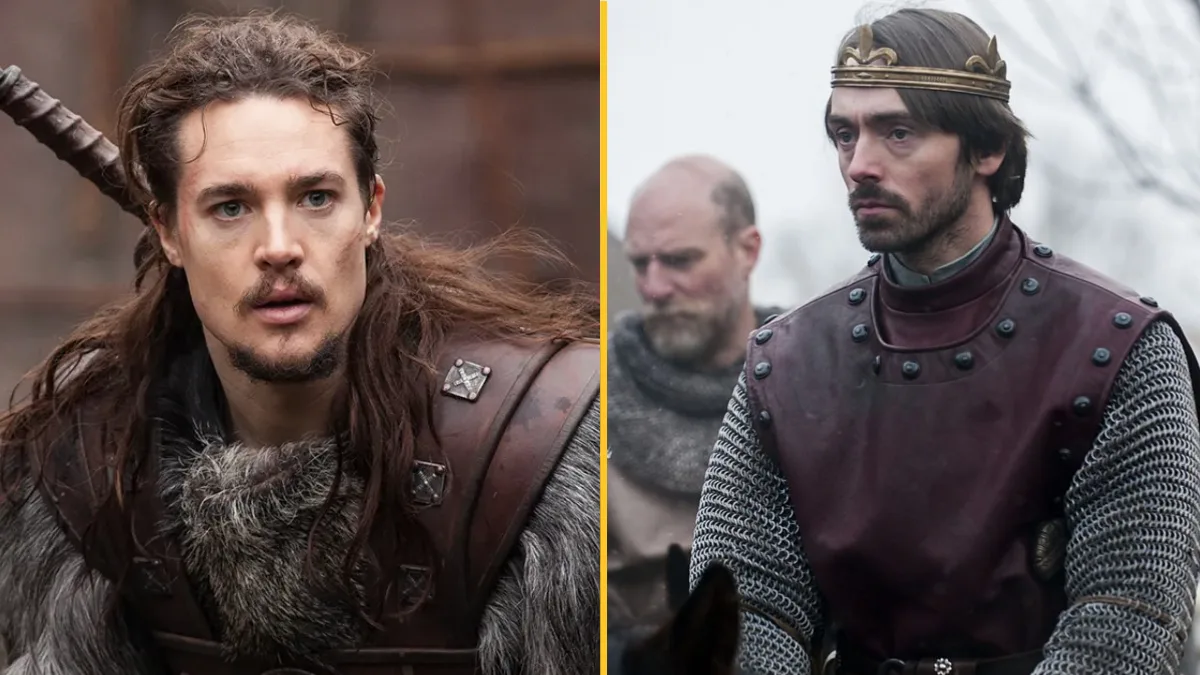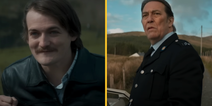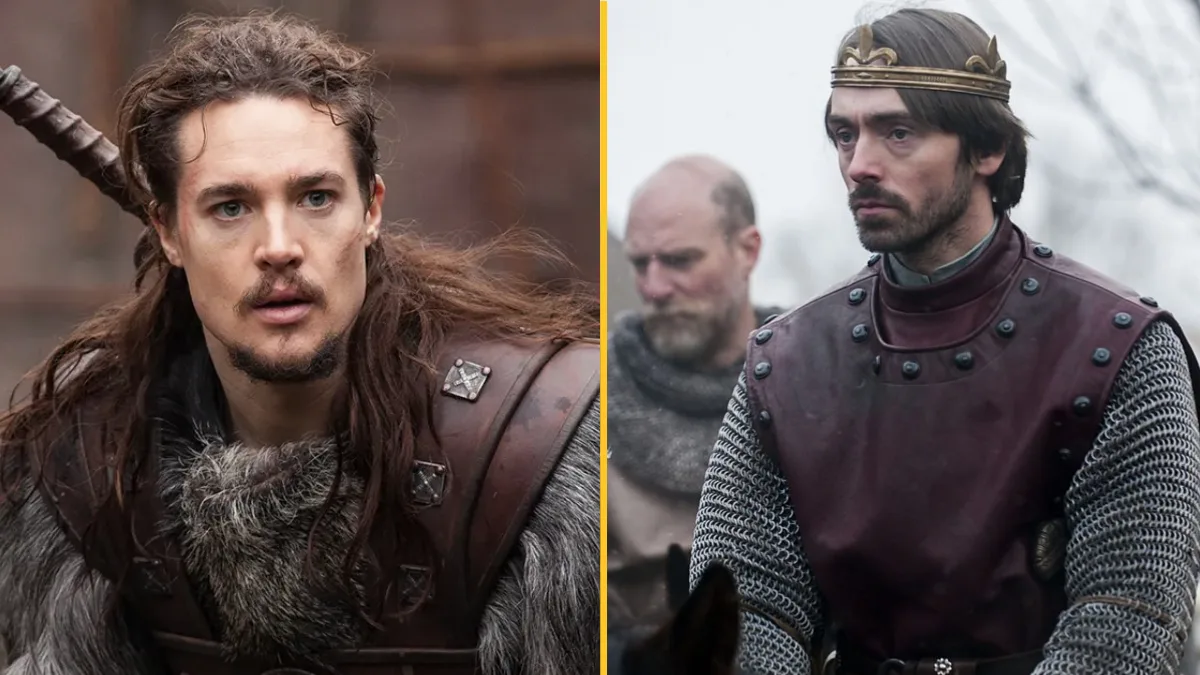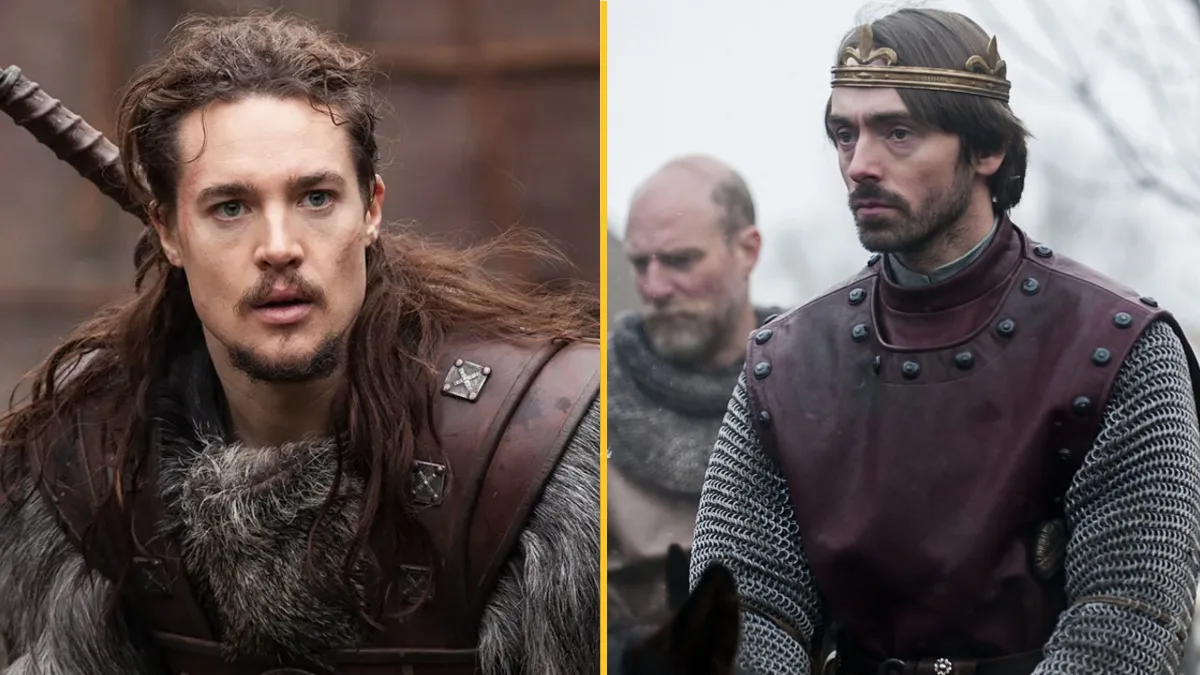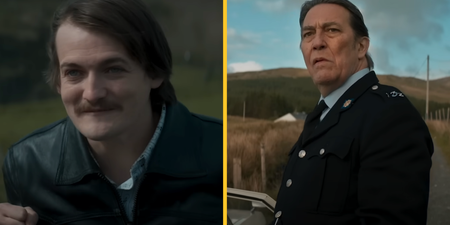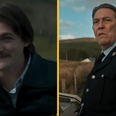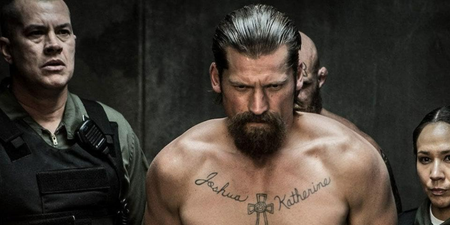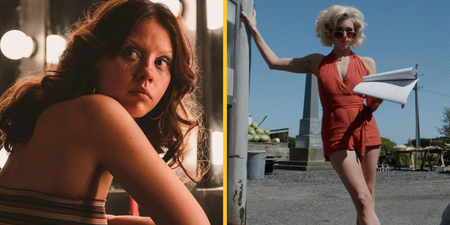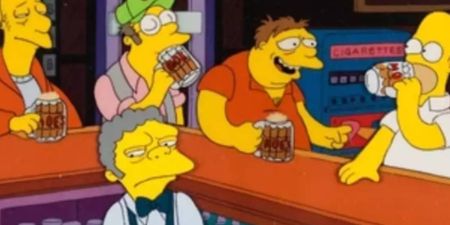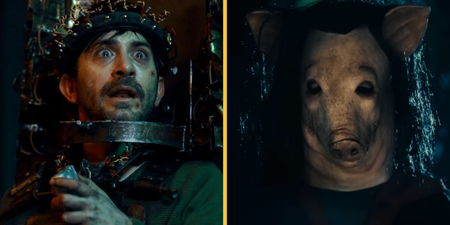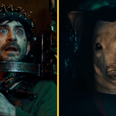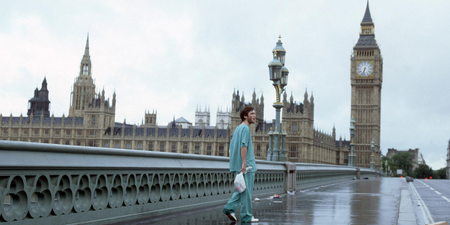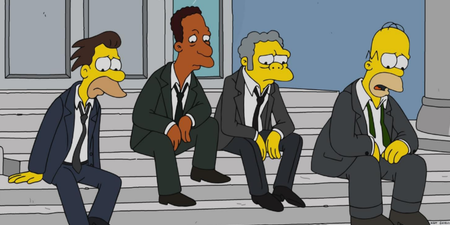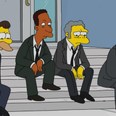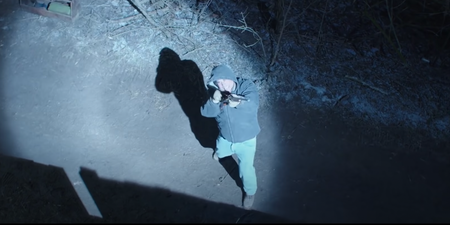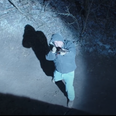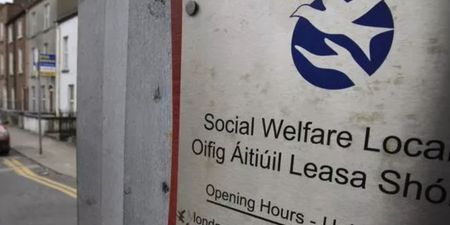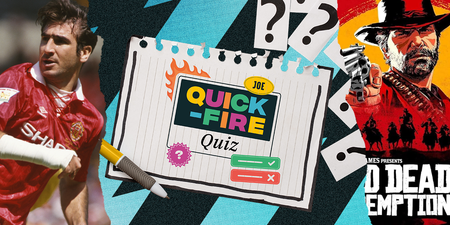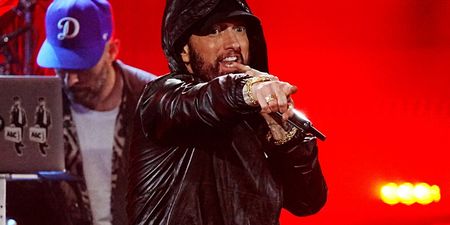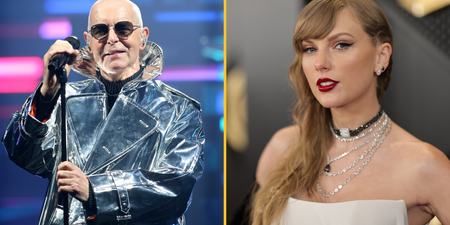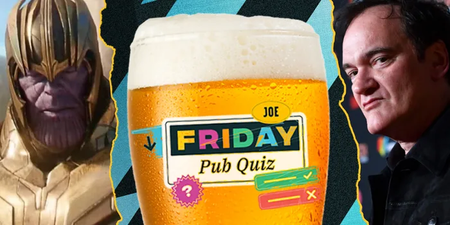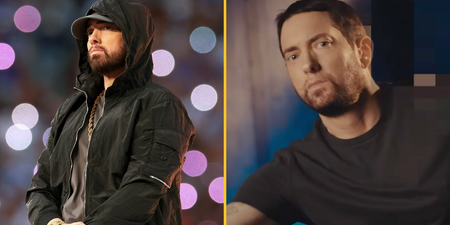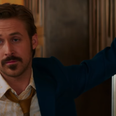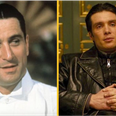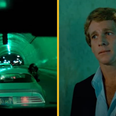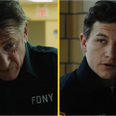The cast in this is incredible and the author also wrote Donnie Brasco. Unmissable.
It’s somewhat fitting that Charles Brandt recently visited Ireland because in a few months time, every single film fan is going to be talking about the story of Frank ‘The Irishman’ Sheeran.
In his New York Times Bestselling book ‘I Heard You Paint Houses’, Charles Brandt tells the first-hand story of Frank Sheeran – a man of Irish descent, a trusted mafia hitman, and the likely murderer in one of the most notorious and unsolved crimes in modern American history, the killing of Teamster’s boss Jimmy Hoffa.
In case you’re not aware, the world’s most gifted director, Martin Scorsese, is adapting Brandt’s book in his new film The Irishman – more about that here – and the cast is nothing short of incredible.
Robert DeNiro, Al Pacino, Harvey Keitel, Stephen Graham, Jesse Plemons, Anna Paquin, and after a nine year absence from a featured role, the incredible Joe Pesci returns to a major film.
If that’s not enough to get you excited, it’s worth noting that the book’s author, Charles Brandt, was a former homicide investigator, prosecutor and District Attorney. Aside from this, he also wrote ‘Unfinished Business’, the story of Joe Pistone on which the incredible film Donnie Brasco was based.
Simply put, The Irishman is shaping up to match Goodfellas, Mean Streets and The Departed in terms of scope, and the real life story is absolutely incredible.
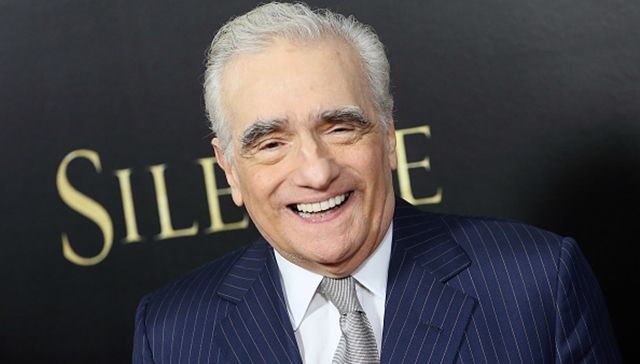
Ahead of his visit to I.NY Festival in Limerick, we had a chance to chat with author Charles Brandt about the life of Sheeran, Frank’s involvement with the Mafia and Jimmy Hoffa, and the upcoming film.
At the age of 21, Frank Sheeran enlisted in the US Army where he served for 411 days of combat duty (a significant amount above the average). After being asked to kill people without hesitation, Brandt believes that this was a significant turning point in Sheeran’s life as he developed a callousness to human life.
“Yes, I really do think that this was a turning point for him. I spent five years interviewing him and we were extremely close. During that period, he confessed to ’25-30 murders’ when he was working for the mob and when I would try to shift the attention away to his war campaign in Europe – where he spent 411 days in combat – he wouldn’t go there. He wouldn’t talk about it, he would yell at me.”
Undeterred, Brandt continued to investigate this period of Sheeran’s life and the author discovered a man that was deeply traumatised by what unfolded.
“I had to go to the history books and follow his division’s campaign trail. Little by little, I had to break that down until he felt comfortable talking about it. He was so traumatised by those combat days – the average was 80 – and he could more easily tell me that he killed Jimmy Hoffa than anything he did in Italy and France. He liberated Dachau, he saw some horrific things, he was in three amphibious invasions – Salerno, Anzio, Southern France – he had quite the war experience.”
As for the murder of Jimmy Hoffa, ‘I Heard You Paint Houses’ can easily rival some of the finest literature in the true crime/gangster genre.
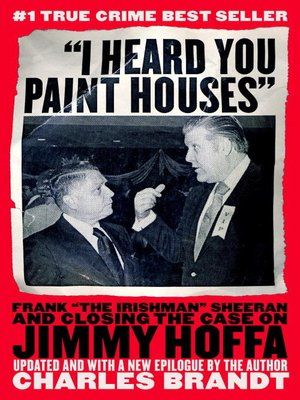
After returning to the US, Sheeran found some work as a trucker but he also made extra money by working for the mob and at that time, one man ruled New York, Russell Bufalino.
In fact, it was Bufalino that put Sheeran in touch with Jimmy Hoffa – the man that he would later admit to murdering.
“That’s going to be a great scene in the movie,” said Brandt and in The Irishman, De Niro will play Sheeran, Al Pacino stars as Frank Hoffa, and Joe Pesci takes on the role of Russell Bufalino.
“Frank returned from the war and got involved with a mobster called Russell Bufalino. He’s the boss of the Bufalino crime family and they had interests in Pennsylvania, upstate New York, parts of NYC, Florida, Canada. He was a very powerful man. When Frank got involved, little by little, he became a part of something that he didn’t know really existed – the Mafia world. He knew though that Russell was a gangster. One day, he said to Russell that he had seen the movie On the Waterfront and he said he’d like to get into Union work someday. Well, Jimmy Hoffa had just taken over the Teamsters Union – it was 1957 – and they were the most powerful labour union that ever existed. Certainly the most powerful union at that time.”
Brandt adds: “Hoffa wanted to solidify his control of the Union by getting rid of his enemies in the rank and file – what they called rebels. Hoffa believed that the only way the working men and women of his union could prosper was by solidarity. Basically, everyone had to be on the same page at the same time. When other union members were trying to make deals for themselves – where they would promise labour in exchange for money – Hoffa wanted those people gotten rid of and he talked to his dear friend, Russell Bufalino.
Guess who Bufalino would turn recommend to do this dirty work?
“Bufalino recommended his good friend, Frank Sheeran to Hoffa. It was a job interview over the telephone. Hoffa was in Detroit, Frank was in Philly, the first words uttered to Frank by Hoffa were “I heard you paint houses” meaning I heard you whack people – the paint is the blood that splatters on the wall. Sheeran replied by saying ‘Yeah, I do my own carpentry too’ which means I get rid of the bodies. Frank got the job, the next day he was flown to Detroit and he started working for Hoffa.”
Despite the fact that he later confessed to committing 25-30 mob murders, there’s one death that’s synonymous with Sheeran’s legacy, Jimmy Hoffa.
“Frank had two masters – Hoffa and Bufalino – but clearly Bufalino was the master of all masters. Some years later, when Frank was ordered to kill Hoffa, he said to me ‘When Russell tells you to do something and you say no, Hoffa would have been just as dead and I’d have gone to Australia with him’ – meaning I’d be down under and be dead like him,” said Brandt.
Despite the fact that Sheeran was a cold blooded and violent killer, the author still believes that there’s an odd sense of morality that defined his life as a gangster.
“That murder of Hoffa haunted Frank Sheeran from the day he did that until the day he died. He went to confession before he came to me even. He confessed his sins and it still haunted him. He then came to me for a five year confession – our interview process – and it still haunted him. He had stopped eating, he decided that it was time for him to go, and he was dead within six weeks of the final interview that we recorded on video.
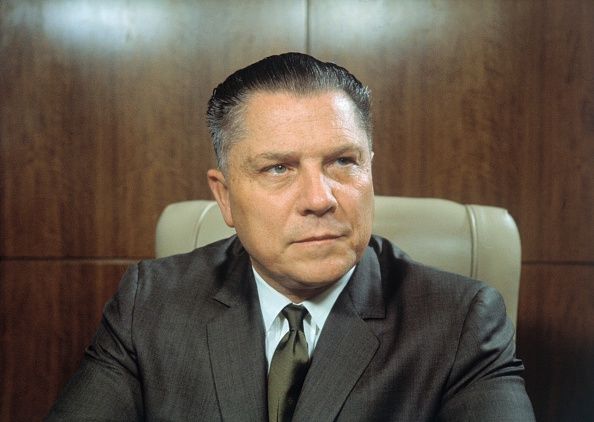
“You can see him on tape, resigned to the life he did and what bothered him a lot was the effect that his notoriety had on his daughters. They were raised Catholic and they were good people. Every once in a while, they’d pick up the paper and see their father being picked up and questioned on a murder. Until the day he died, that haunted him. Hs daughter brought him to the priest and explained how important it was for him to be sincere and show penance for his sins.”
“Frank was raised by a very strict father. In fact, Frank’s father had studied for the priesthood, and his mother who went to mass every morning. When he was a young fella, America didn’t know about the Mafia. We knew there were individual gangs of criminals – like the Capone gang in Chicago and the waterfront gang in New York City – but we didn’t know that they were all connected. Frank already had a morality from his childhood and he had a strict Catholic code.”
As for Scorsese’s adaptation of his book, Brandt couldn’t be any happier with what he has seen from the script – the author was also involved with the production on The Irishman in is role as a script advisor.
“I’m thrilled that there’s a film. The usual understanding of authors is that once the rights to their book are sold, they’re usually done. Usually, writers are not involved in anyway after that. Just to be called in to work with Marty, De Niro and Steve Zaillian (scriptwriter) was such an honour. I knew they would value what I had to say, and they did. I can’t tell you what that experience was like. Ok, it goes like this 1) Getting married, 2) Having children/grandchildren, 3) Working on this!
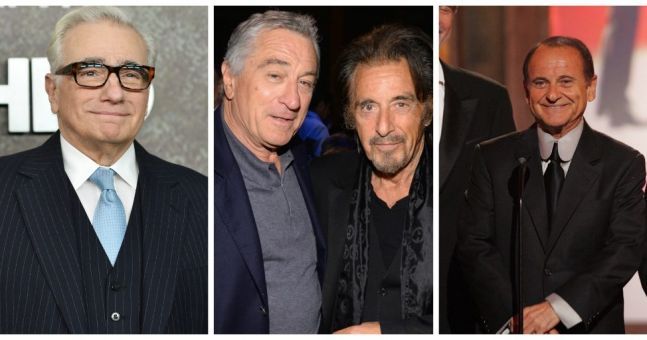
Clip via Netflix
LISTEN: You Must Be Jokin’ with Aideen McQueen – Faith healers, Coolock craic and Gigging as Gaeilge
